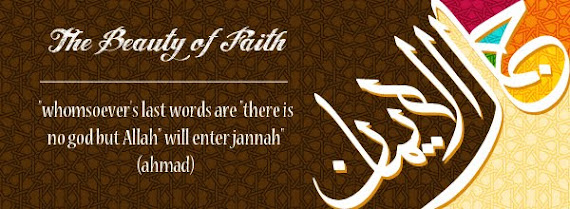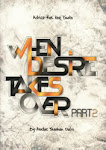"Imagine a plain, like a vast empty field and rain is pouring down upon this field. After a few days the soil will dry and it will seem as though it never rained at all. After a few weeks or months you will start to see plants grow on that same land due to the rain that fell. The field is us, the Muslims. The rain is Ramadhan. Our bodies soaked up the water of Ramadhan and just because the blessed month is over do not think that there is no change or benefit in our condition. The fruits and vegetables which we planted in the month of Ramadhan will be harvested in Jannah and that is when you will see the rewards for your efforts in this month." (Shaykh Maseehullah Khan)
The month of Ramadhan went as quickly as it came. Whether we will be alive for the next Ramadhan we don't know but do not think that any of your ibadat or duas that you made in this blessed month were not accepted or counted. Some people tend to go back to how they were before this month started and then they lose hope in Allah Ta'ala and think that Allah Ta'ala hates them or is angry with them and because of that their condition didn't change and that their whole month of fasting went to waste along with all their tarawih and other acts of ibadat that they did, but this is not correct. Ramadhan wasn't just for the pious people to benefit from, it was there for everyone to benefit from. No matter how small your ibadat was you will see the reward of it in the hereafter.
A muslim should always keep good thoughts of his Creator. In our minds and hearts we should say, "Allah Ta'ala is happy with me, Rasullulah sallalahu alayhi wasalam is happy with me, my parents are happy with me, the ulama are happy with me, my ustaadhs and teachers are happy with me and the mashaaikh are happy with me." Why? because if a person keeps good thoughts like these flowing in his mind it will create a desire to keep on progressing in his Deen and Islam no matter what. If you keep commit a certain sin, then make taubah, some sort of repentance and istighfar and have hope that Allah the Most Merciful has accepted your repentance each time. Even if you think you don't know how to do taubah properly then just still do your taubah whatever way possible and explain to Allah Ta'ala that you don't know how to do taubah properly and to accept your efforts. Allah Ta'ala is The Most Patient and Most Forgiving. If you have still been given time to live after commiting a sin then you have also been given the time to make taubah and stay away from that which Allah Ta'ala dislikes.
If a person commits a sin and thinks that Allah Ta'ala is angry with him and won't forgive him then he will lose hope and to him it won't make a difference if he misses his salaah or doesn't pay his zakaat because to him he will think that it won't make a difference and that Allah Ta'ala won't accept whatever he does anyway. So eventually he will lose any interest in doing good deeds of any sort because to himself he will view his bad deeds as soo great that to himself he will think, "How can Allah forgive me after all that which I have done? What difference will it make if I miss another salaah when I missed my fajr this morning?". If you actually think about it really and truly we shouldn't even be alive at this moment of time because of the amount of sins we commit on a day to day basis are soo great in number that we deserve to be destroyed or punished straight away. But no, by the Mercy and Patience of Allah we are still alive and breathing so by His Mercy we will also be forgiven. Therefore, we should try and make use of whatever time we have left and seek forgiveness from Allah Ta'ala for whatever mistakes we commited and also give thanks to Allah Ta'ala by doing good deeds for giving us the time to live and the chance to make taubah about the things which we may have done.
May Allah Ta'ala grant us all steadfastness and taufeeq to do good deeds. Ameen.
To end this post I will write a qoute that crossed my mind whilst writing this peice.
"...It is only by the Mercy of Allah that you are alive and well today,
...and it will only be by the Mercy of Allah that you will enter Jannah tommorow..."







